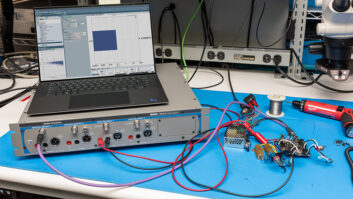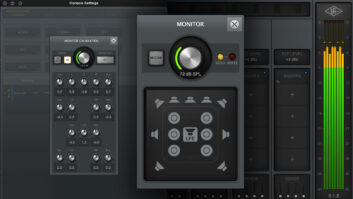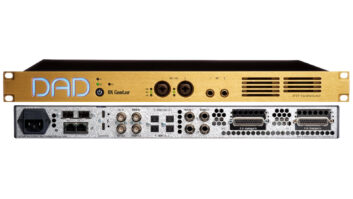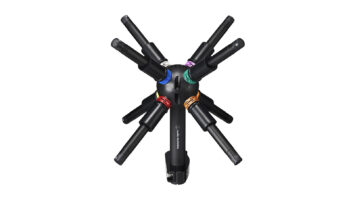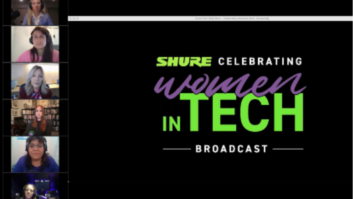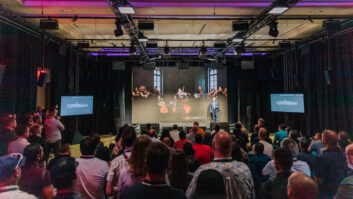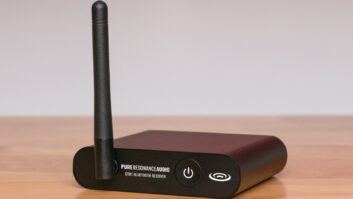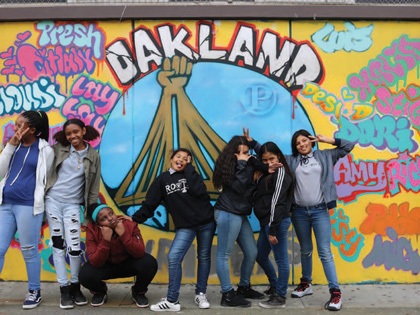
The gender imbalance in the audio industry is easy to see. But changing the mindset of a long-entrenched boys’ club? That’s not so easy. One solution that’s clear, however: Bringing more women into audio careers starts with education and access—programs that give girls the tools to build on their passion for music and tech.
Engineer and musician Terri Winston, founder and director of the Women’s Audio Mission, has made women and girls’ audio education her life’s work. She founded WAM in 2003, opening its first studio/training facility in San Francisco’s Mission District. More recently, WAM has opened a satellite facility across the Bay, in Oakland.
“We developed a partnership with the Oakland Unified School District and settled in the Fruitvale neighborhood because there are eight public schools within walking distance and 14 more with an easy transportation corridor,” Winston says. “These are chronically underserved girls, with a 30 to 40 percent high school dropout rate, 96 percent low income, 90 percent girls of color. This is our target population.”
Thanks to a dedicated staff—including former student intern Victoria Fajardo, who leads efforts at the Oakland facility—and donated equipment from Ableton, Audient, Tascam, Mackie, Avid and others, WAM gives at-risk girls the training to make music, despite the fact that most of their schools offer little to nothing in the way of arts education.
“Seventy percent of these kids have never touched a musical instrument,” Winston says. “That’s sad to me, but now we can give them an outlet and a way to amplify their voice.”
The Institute for Musical Arts, founded by Ann Hackler and June Millington, also began on the West Coast—in Bodega, Calif., in 1986—but in 2001, IMA moved to rural Goshen, Mass., where Hackler and Millington offer music and recording camps and workshops for preteen and teenage girls, in an idyllic atmosphere.
“We own this piece of property; it’s 25 acres with a house and two barns, and to one of the barns we have attached a bunk house and two recording studios,” explains Millington, a groundbreaking guitarist who co-founded the all-female rock group Fanny toward the end of the 1960s. She still performs and works on personal projects, such as her upcoming memoir, but her main concentration is what she calls “playing it forward”: giving budding musicians and record- ists the support and skills to realize their creative ideas.
“We had zero access to studios and equipment when I was coming up, let alone the possibility of turning on the TV and seeing anyone who looked like us playing out,” Millington reflects. “We talk about ‘changing the world one girl at a time,’ and that’s all about giving them that access to equipment. I’m totally convinced of that.”
Like WAM, IMA benefits from the generosity of audio developers, such as Avid, Millennia Media and Grace Design. Mogami provided all of the cabling for the facility, and the Walters-Storyk Design Group donated the room designs. “In our larger studio, we have an SSL board that was given to us by Berklee School of Music,” Millington adds.

Leslie Ann Jones works in the studio with one of IMA’s
recording students.
The console donation was spearheaded by Berklee professor/engineer/producer Leanne Ungar (Leonard Cohen, Willie Nelson, etc.) and WSDG systems design engineer Judy Elliot-Brown, who headed up the installation. Another industry pro who has shared her expertise with IMA students is multiple Grammy-winning engineer and Skywalker Sound Director of Music and Scoring Leslie Ann Jones, who spends part of every summer working with IMA campers.
“IMA was created specifically for girls and young women, and I want them inspired and empowered to record their own music and not let the lack of understanding technology hold them back,” Jones says. “I did not have that when I was starting out and was completely self-taught until I actually started working in studios. It is not really about walking out after 10 days and becoming an engineer, but just like at their performance camps, the girls are much more comfortable and have a greater understanding of the process of recording music. The rest is up to them.”
